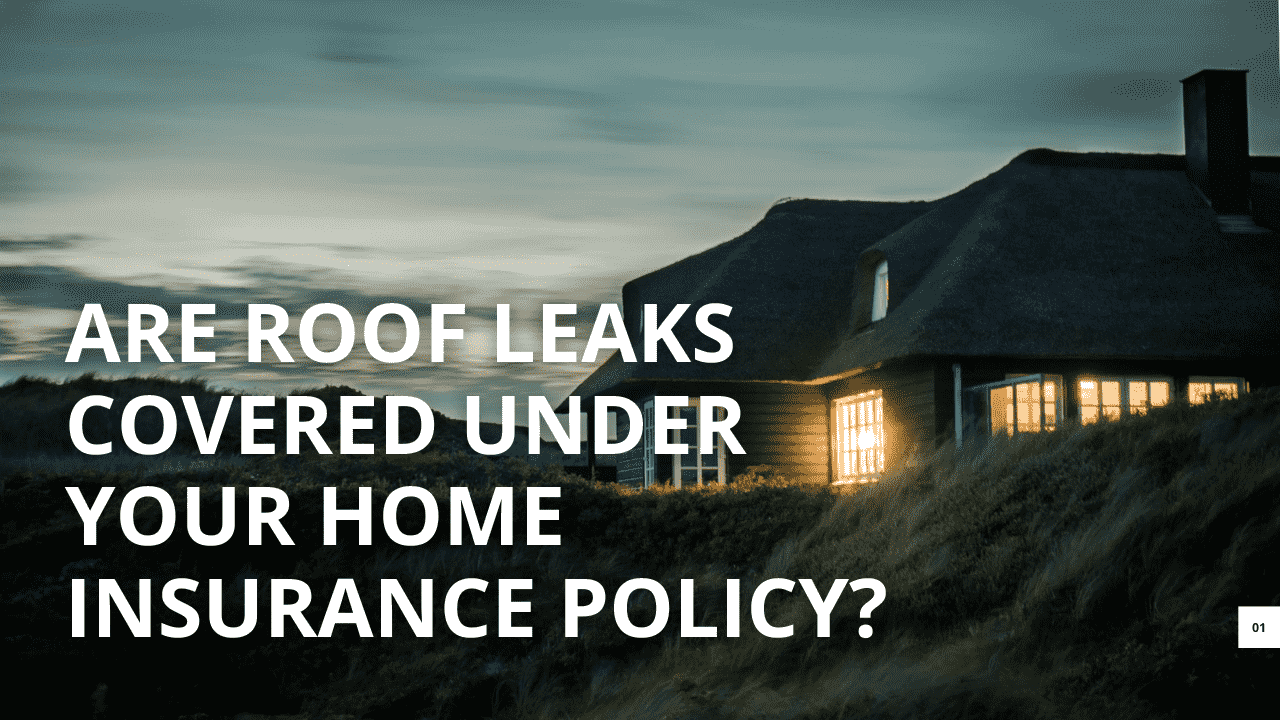Roof leaks are one of the most common issues homeowners face. Whether it’s a minor drip or a significant breach, roof leaks can cause substantial damage to your home if not addressed promptly. But the big question is, does home insurance cover roof leaks? The answer depends on the cause of the leak and the details of your insurance policy. Let’s explore the factors that determine whether or not your home insurance will cover roof leaks.
Understanding Home Insurance Coverage
Homeowners insurance is designed to protect your home and personal belongings against specific risks, or “perils,” such as fire, wind, hail, and theft. However, it doesn’t cover everything, and whether or not a roof leak is covered depends on what caused the leak in the first place.
When Does Home Insurance Cover Roof Leaks?
- Covered Perils:
- Storm Damage: If a roof leak occurs due to a storm, such as heavy rain, hail, or wind, your home insurance policy will likely cover the damage. For example, if a tree falls on your roof during a windstorm, causing it to leak, your insurance should cover both the cost of roof repairs and any damage caused by the leak inside your home.
- Fire Damage: If a fire causes damage to your roof, leading to leaks, the cost of repairs and the resulting water damage will typically be covered by your insurance policy.
- Vandalism: If someone vandalizes your roof, resulting in a leak, your home insurance should cover the repairs.
- Sudden and Accidental Events:
- Home insurance generally covers damage caused by sudden and accidental events. For instance, if a pipe bursts in your attic, causing water to leak through the roof, this would likely be covered. The key is that the event must be unexpected and not due to negligence.
When Does Home Insurance Not Cover Roof Leaks?
- Wear and Tear:
- Home insurance policies typically do not cover damage resulting from normal wear and tear or lack of maintenance. If your roof is old and deteriorating, and it starts leaking as a result, your insurance will likely not cover the repairs. Regular maintenance is crucial to prevent leaks caused by wear and tear.
- Negligence:
- If the insurance company determines that the leak was caused by your failure to maintain the roof, they may deny your claim. For example, if you knew about missing shingles but didn’t repair them, leading to a leak, your insurance likely won’t cover the damage.
- Exclusions:
- Some policies have specific exclusions, such as damage caused by mold or pests. If your roof leak is due to an issue that’s explicitly excluded from your policy, you won’t be covered. It’s essential to review your policy to understand these exclusions.
How to File a Claim for Roof Leaks
If you discover a roof leak and believe it’s due to a covered peril, follow these steps to file a claim:
- Document the Damage: Take photos or videos of the damage to your roof and any interior damage caused by the leak.
- Prevent Further Damage: If possible, make temporary repairs to prevent further damage. For instance, place a tarp over the damaged area to stop more water from entering your home.
- Contact Your Insurance Company: Report the damage to your insurance company as soon as possible. Provide them with all the necessary documentation and details about the cause of the leak.
- Meet with an Adjuster: The insurance company will send an adjuster to inspect the damage and determine if it’s covered under your policy.
- Get Repair Estimates: Obtain estimates from licensed contractors for the cost of repairs. Share these with your insurance company to help expedite the claims process.
Conclusion
Roof leaks can be a stressful and costly issue for homeowners. Whether or not your home insurance covers the damage depends on the cause of the leak and the specifics of your policy. While damage from covered perils like storms or fire is usually covered, leaks caused by wear and tear, neglect, or excluded events are not. To ensure you’re adequately protected, it’s crucial to maintain your roof, understand your insurance policy, and act quickly if a leak occurs.
If you’re unsure about your coverage or need help navigating a claim, consider reaching out to your insurance agent for guidance. Taking the time to review and understand your policy can save you a lot of hassle and expense in the long run.
